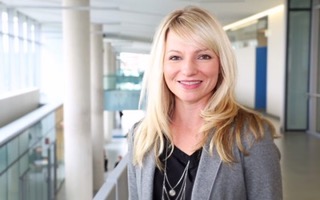Recherche
Légende
|
Accepte de nouveaux clients
|
N’accepte pas de nouveaux clients
|
|
Les services sont fournis en ligne
|
Se déplace dans les secteurs adjacents
|
|
Se déplace dans les secteurs éloignés
|
Clinicien(ne) réglementé(e) / agréé(e)
|
Jordan’s Principle: Why it Matters for Aboriginal Children with Autism and their Families
Safe and inclusive family time – you help make this gift a reality!
Ontario Government Announces Inter-ministerial Approach
Sensory Strategies for Teens and Adults
Offering Sympathy and Solidarity in Supporting Families Affected by Recent Events at Beating the Odds
Autism Ontario Responds to Announcement Regarding Implementation of the Needs-Based Program
Careers
Top Ten Things You Should Know About Learning to Print
How Can I Help My Child to Print?
Donner du pouvoir aux familles : le « modèle d’approche par étapes » pour des revendications efficaces
About Autism
Empowering Families: The Step Approach Model for Effective Advocacy
Webinar - Jordan’s Principle: Understanding the Funding and How to Apply
Jordan’s Principle is a child-first and needs-based requirement in Canada to ensure that First Nations children living on and off reserve have equitable access to all government funded public services. It highlights that First Nations children should have access to public services without delay or denial.
This webinar will give you the basics of what it is, how to apply as well as who you can connect with for support navigating Jordan’s Principle in Ontario.
Speaker: Monica Hemeon
Monica is the Jordan’s Principle Coordinator for Nishnawbe Aski Nation, which serves 49 First Nations Communities in Northwestern Ontario. She has spent her career working with Indigenous people to improve their health outcomes and is now advocating for the children through Jordan’s Principle. She has a Critical Care, Diabetes, Wound Care and Administrators Certificate and is enrolled in the First Nations Health Managers Association Certification Course. She is a Registered Nurse from the Red Rock Indian Band and the mother of 2 boys.
Webinar - ONTABA Professional Series - Employment & Human Resources Issues During COVID with Kendra Thomson & Nancy Marchese
The global pandemic has impacted every corner of society including how specialized behavioral services and supervision are delivered. Practitioners have had to pivot to delivering services remotely which has required innovation and patience of all involved. This webinar is geared towards practitioners providing behavior analytic services to clients and behavior analytic supervision to trainees. Guidelines for compassionate care during these unprecedented times will be discussed in addition to ideas for continuing to provide high quality supervision to trainees. Learning objectives:
1. Participants will become familiar with an overview of the literature and practice recommendations for delivery ABA services within a compassionate care framework
2. Participants will become familiar with innovative ways to continue to support behavior analytic supervisees during pandemic related restrictions
Additional sessions in this series:
1. Employment & Human Resources Issues During COVID-19 with Natasha Danson
Presenters:
Kendra Thomson is an Associate Professor in Applied Disability Studies at Brock University, a Doctoral-level Board Certified Behavior Analyst (BCBA-D), and a clinician-scientist in the Azrieli Adult Neurodevelopmental Centre at the Centre for Addiction and Mental Health in Toronto, Ontario. Kendra has almost 20 years of experience in various clinical and research settings supporting people with intellectual and/or developmental disabilities (I/DD) across the lifespan. Kendra, her graduate students, and their community partners have published research in: Journal of Applied Behavior Analysis, Behavior Analysis: Research & Practice, and Journal of Autism and Developmental Disorders. She is currently the president of the Ontario Association of Behaviour Analysis, and past-co-chair of the professional regulation committee.
Nancy is the Executive Director and Founder of Breakthrough Autism. A Board Certified Behavior Analyst (BCBA) and Clinical Psychologist, she completed her Master of Arts in Psychology with a specialization in Behavior Analysis at the University of Nevada, Reno. She is currently working on her PhD in Behavior Analysis through Endicott College. Nancy has published research in the flagship Journal of Applied Behavior Analysis (JABA) and has presented at both provincial and international conferences. Nancy is currently the president-elect of the Ontario Association of Behaviour Analysis. Based on her extensive expertise and clinical experience, Nancy was appointed to serve on the ASD-Clinical Expert Committee (CEC) for what was formerly known as the Ministry of Children and Youth Services.
Housing Through an Autism Lens
This document captures the patterns and insights of housing through an autism lens. It describes why we gathered participants and partners from the autistic housing system in this Solutions Lab and what we did to explore the legislative, programmatic, and lived experience of autistic adults in housing.
We hope that you can use this document to inform your work in bettering housing for autistic adults and/or adults with intellectual and developmental disabilities. We intend to present the challenge of securing safe, suitable, and supportive housing for autistic adults and spark your curiosity into how we can develop solutions. We would also like to extend a sincere thank you to all the partners, participants and, in particular, the autistic advisors as well as the many people who contributed their stories. Without them, this project would not be possible.
Webinar - Understanding Autistic Burnout, Inertia, Meltdown, and Shutdown (BIMS) with Dr. Christie Welch
Dr. Christie Welch has been researching Burnout, Inertia, Meltdowns, and Shutdown (BIMS) from the perspectives of autistic children, youth, and adults. In this webinar, Dr. Welch will share her research findings including how her autistic co-researchers describe and experience BIMS and what they found helpful. We will also discuss the importance of including the lived autistic experience by using terms that come from the autistic community when refining the definition of BIMS. Finally, we'll explore the BIMS self-management tools that Dr. Welch's research team has under development.
This webinar is appropriate for autistic youth, adults, and their families as well as professionals working with this population. For more information on this topic, please see the additional resources attached below.
Speaker: Dr. Christie Welch
Christie Welch Ph.D., OT Reg. (Ont.) is a registered Occupational Therapist who has been practicing since 2001. She completed a Ph.D. in Rehabilitation Science at the University of Toronto and a postdoctoral fellowship at the Bloorview Research Institute. Christie is passionate about building a new understanding of autism that is based on the perspectives of people who identify as autistic. Her research focuses on experiences identified as important by autistic people; specifically, burnout, inertia, meltdown, and shutdown. She is currently an Assistant Professor, Teaching Stream at the University of Toronto.
Disclaimer: Opinions reflected in this webinar are those of the speaker(s) and presenter(s), and do not necessarily reflect Autism Ontario’s views. Please note Autism Ontario does not endorse any specific therapy, product, treatment, strategy, opinions, service, or individual. We do, however, endorse your right to information. Autism Ontario strongly believes that it is important to do your own research and make your own informed decisions.
Webinar - Mini-Series - Tackling Toilet Time: Part 4- Bedwetting and Challenging Behaviours Related to Toileting
Learning to use the toilet and other associated skills (e.g., self-care routines, staying dry throughout the night) can be a huge milestone for an individual and their family.
This webinar mini-series is intended to support parents and caregivers of individuals with autism who are interested in learning more about toileting and the various skills it entails, when it might be time to focus on a particular skill, who can help you with various goals, and common strategies that are used to support each toileting skill area.
Part 4- Bedwetting and Challenging Behaviours Related to Toileting
The final webinar in this series will discuss bedwetting and challenging behaviours related to toileting. We will review when to seek support, who can help, and potential reasons for these behaviours.
Additional sessions in this series:
Part 1- What to Consider Before and Throughout Your Toileting Journey
Part 2- Toileting Schedules and Self-Care Routines
Part 3- Daytime Toilet Training
Speaker Information:
Bethany Brewin M.Sc.O.T.
Bethany is an experienced occupational therapist living in Simcoe County. She attended the University of Toronto for her Master of Science in Occupational Therapy. She has worked with children, youth, and families across Canada, as well as providing consultation services to childcare settings, schools, and community organizations. Bethany has presented on a variety of topics over the years, from fine motor skills to the impact of screen time on early childhood development. She is particularly passionate about connecting with the world around us through mindfulness: engaging our senses to connect with our surroundings. Bethany is part of Autism Ontario’s "Subject Matter Expert" team.
Kristin Gunby, M.S., BCBA, Behaviour Analyst
Kristin is a Board Certified Behavior Analyst® (BCBA®) with over twenty years of experience supporting individuals with Autism and their families. Kristin completed her Bachelor of Arts in Linguistics at Brock University and her Master of Science in Behaviour Analysis from St. Cloud State University. Kristin has worked both privately and publicly as a clinician throughout various iterations of the Ontario Autism Program. She has also worked as an Applied Behavior Analysis Facilitator for a public-school board in Ontario. She has published studies in the Journal of Applied Behavior Analysis and Behavioral Interventions in the areas of safety skills, joint attention, and teaching presentations. Kristin is part of Autism Ontario’s newly formed “Subject Matter Expert” Team.
Disclaimer: Opinions reflected in this webinar are those of the speaker(s) and presenter(s), and do not necessarily reflect Autism Ontario’s views. Please note Autism Ontario does not endorse any specific therapy, product, treatment, strategy, opinions, service, or individual. We do, however, endorse your right to information. Autism Ontario strongly believes that it is important to do your own research and make your own informed decisions.
Webinar – Ask the Doctor: Improving Pathways to Timely Diagnosis of Autism with Dr. Lonnie Zwaigenbaum
Recognizing the early signs of autism is an important step along the pathway to diagnosis to ensure children have access to supports and services and that parents' concerns and questions are addressed.
We have learned a lot about the earliest features of autism, in part from the experiences of parents and, more recently, from research involving younger siblings, who are at increased likelihood of the diagnosis themselves. Despite growing knowledge of the earliest signs of autism, the average age of diagnosis has barely decreased as families face long waits to access assessments. Can we do better?
In this webinar, we will discuss strategies supporting more timely access to diagnostic assessment through training and collaboration with community physicians and other professionals. Finally, we will share ideas about how families can be supported through this process, including the involvement of experienced parents in navigation and other important roles.
Speaker: Dr. Lonnie Zwaigenbaum
Dr. Zwaigenbaum is a developmental pediatrician and Professor in the Department of Pediatrics at the University of Alberta, supported by the Stollery Children’s Hospital Foundation Chair in Autism. He is also the Edmonton Zone Clinical Department Head for Child Health, Alberta Health Services. His current research focuses on early features of autism, as well as improving diagnosis and health care related to autism. He recently chaired the oversight panel of the Canadian Academy of Health Sciences Autism Assessment requested by the federal government to guide the national autism policy strategy. In his clinical roles at the Glenrose Rehabilitation Hospital, he has co-led community training on autism diagnosis and ongoing pediatric care.
Disclaimer: Opinions reflected in this webinar are those of the speaker(s) and presenter(s), and do not necessarily reflect Autism Ontario’s views. Please note Autism Ontario does not endorse any specific therapy, product, treatment, strategy, opinions, service, or individual. We do, however, endorse your right to information. Autism Ontario strongly believes that it is important to do your own research and make your own informed decisions
- JASPER (in clinic)
- Music Program
- Year round social skills groups & camps
- School readiness
- Parent support (online consults, online classes, in person consults)
- Respite care
- Tutoring
- Education training (schools - teachers, paraprofessionals)
- Issues addressed include developmental delays, special needs, accent reduction, stuttering, learning disability, ASD, TBI, Stroke, Parkinson's Disease







